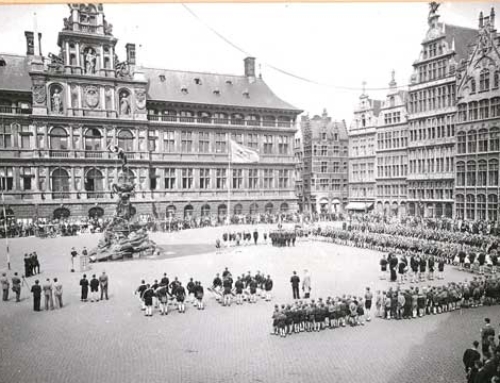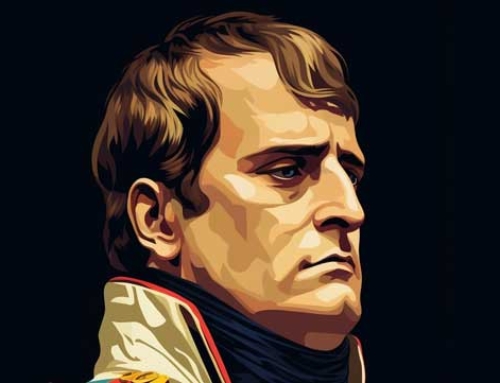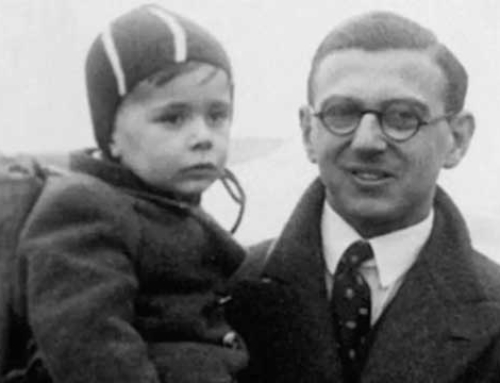As an avid film enthusiast deeply rooted in humanist values, I was intrigued to experience Ridley Scott’s latest epic, ‘Napoleon’. This film, starring Joaquin Phoenix, has already sparked a wave of discussions before its release. I would like to share my thoughts on this cinematic endeavor, both fascinating and controversial.
“A leader is a dealer in hope.”
Visual splendor and intense battlefields
First and foremost, the visual splendor of the film is undeniable. Scott, known for his epic storytelling, does not disappoint with large-scale battlefield scenes that are both breathtaking and intense. The scene of the Battle of Austerlitz, with its chilling images of soldiers fighting on frozen lakes, is a visual spectacle that kept me glued to my seat.
Phoenix’s Napoleon: a complex portrait
Joaquin Phoenix, in the role of Napoleon, delivers a powerful and memorable performance. His portrayal of the legendary French leader is not only complex and layered but also surprising and sometimes even unconventional. Phoenix brings a humanity and intensity to the character rarely seen in historical figures. His Napoleon is not just the brilliant strategist and charismatic leader often described in history books, but also a deeply frustrated and sometimes bloodthirsty despot.
This approach to the character is intriguing and raises important questions about the nature of power and leadership. Phoenix’s Napoleon is not the infallible hero or the one-dimensional tyrant; he is a man of contradictions, driven by both an unstoppable ambition and deep personal insecurity. This complexity makes his portrayal fascinating to watch.
In certain scenes, we see a Napoleon struggling with the burden of his own legend, while in other moments, he appears almost monstrous in his thirst for power and control. Phoenix succeeds in uniting these different facets of Napoleon’s character into a credible and captivating portrayal. His acting is subtle and nuanced, taking the viewer on a journey through the psyche of one of history’s most iconic figures.
This interpretation of Napoleon is not just a testament to Phoenix’s acting skills but also contributes to a deeper understanding of the complexity of historical figures. It reminds us that history is not black and white but filled with shades of gray and human complexity. Phoenix’s Napoleon is a reminder that even the most influential figures in history, with all their power and glory, were ultimately just people with their own weaknesses and demons.
“From the sublime to the ridiculous is but a step.”
Missed opportunity for female character development
However, as a committed humanist and fervent advocate for inclusion and women’s rights, I couldn’t help but be disappointed by the way ‘Napoleon’ treats the deeper layers of its characters, especially the female ones. The character of Joséphine, played by Vanessa Kirby, is a striking example of this.
Joséphine de Beauharnais is undoubtedly one of the most intriguing figures in French history, a woman who played a crucial role in Napoleon’s life and in the political intrigues of her time. However, in the film, her character is not fully realized.
The film misses a golden opportunity to delve deeper into the complexity of Joséphine’s character. Her relationship with Napoleon, which in reality was a mix of deep love, political calculation, and personal struggle, is reduced in the film to a superficial romantic subplot. This detracts from the historical significance of her figure and the influence she had on both Napoleon and the course of French history.
This superficial treatment of Joséphine’s character is all the more disappointing because it could have been a perfect opportunity to explore themes of love, power, and gender dynamics in a historical context. Joséphine was not just Napoleon’s wife; she was a survivor, an influencer avant la lettre, who navigated her own position and power in a male-dominated era. Her story could have served as a powerful medium to highlight the struggle of women in a male-dominated world and to show how they, despite the limitations of their time, still had a significant influence.
Instead, her character is largely reduced to a supporting role, with her deeper motivations and complexities left untouched. This is a missed opportunity, not only from a historical perspective but also from a humanist one that strives for a more inclusive and nuanced portrayal of women in the film industry. It is my hope that future filmmakers will treat these rich historical figures with the depth and respect they deserve.
Historical inaccuracies: a double-edged sword
Ridley Scott’s ‘Napoleon’, while visually stunning and dramatically compelling, faces criticism for historical inaccuracies noted by various critics. Scott’s artistic choice to focus on the more spectacular and dramatic elements of Napoleon’s life, at the expense of historical accuracy, has led to some frustration among history buffs and academics. As someone who deeply appreciates the nuances of history, I found these deviations from historical reality sometimes distracting.
The film takes certain liberties with historical events and figures, leading to a distortion of the actual events and personalities of the time. For example, the way certain battles are depicted, or the exaggeration of certain personal traits of Napoleon, may serve more for dramatic effect than historical accuracy. This can lead to a skewed view of the actual historical events and figures, particularly problematic for a film that presents itself as a historical drama.
However, I understand that film is an art form and that filmmakers must take creative liberties to tell a compelling story. It is a delicate balance between telling an attractive story and staying true to historical truth. In the case of ‘Napoleon’, Scott seems to have opted for a more dramatic and visually appealing approach, which certainly has its merits in terms of creating an engaging film experience.
Nonetheless, it remains important to be aware of these deviations and to view the film with an understanding of the artistic license taken. It is essential that we as viewers distinguish the film from actual history and recognize that the film is an interpretation, not an exact representation of historical events. This awareness is crucial, especially in an era where media plays a powerful role in shaping our perceptions of the past.
“The history is the version of past events that people have decided to agree upon.”
The duality of Napoleon: genius and ruthlessness
Another aspect of ‘Napoleon’ that caught my attention was the way Ridley Scott approaches the complexity of Napoleon Bonaparte’s character. The film seems to seek a delicate balance between depicting Napoleon as a brilliant strategist and a ruthless ruler. This duality in Napoleon’s character is undoubtedly fascinating and offers an intriguing look at the man who has been described as both a hero and a tyrant in history.
On one hand, we see Napoleon as the brilliant military leader, whose tactical acumen and strategic insights made him one of the greatest commanders in history. Scott succeeds in highlighting this side of Napoleon through impressive battles and clever political maneuvers. On the other hand, the film also shows Napoleon’s ruthless and sometimes cruel side, where his ambition and desire for power lead to decisions that bring about significant human costs.
However, despite this interesting duality, the film sometimes struggles to maintain a coherent and consistent vision of its main character. There are moments when Napoleon’s character development feels somewhat fragmented, leaving the viewer confused about his true nature and motivations. This inconsistency can sometimes detract from the overall narrative coherence of the film.
This struggle to paint a clear picture of Napoleon may be partly due to the complexity of the historical figure himself. Napoleon Bonaparte was a man of many contradictions, someone whose life and legacy are still subjects of debate and analysis. It is a challenge for any filmmaker to portray such a layered and controversial figure in a balanced way.
Nevertheless, Scott’s interpretation of Napoleon offers an intriguing perspective on a figure who significantly influenced the course of history. While the film may not always succeed in delivering a fully coherent image of Napoleon, it still provides a captivating exploration of the many facets of his complex personality. This makes ‘Napoleon’ a valuable contribution to the cinematic portrayal of historical figures, despite the challenges of presenting such a layered character.
The human costs of war and power
As a viewer with deeply rooted humanist convictions, I particularly appreciate ‘Napoleon’s attempts to highlight the human costs of war and power. The film goes beyond just showing the grandeur and spectacle of battlefields; it also brings forth the tragic reality of war. The battlefield scenes are indeed visually impressive, but they also serve a deeper purpose by raising questions about the ethics of warfare and the toll it takes on both leaders and ordinary soldiers.
These scenes show the horrors of battle, the chaos on the battlefield, and the personal sacrifices made by soldiers. They depict how individuals, often young men, are swept up in the maelstrom of larger political and military ambitions. It is this human dimension of war that is often lost in history books and that Scott brings to the forefront in a gripping manner. The film does not shy away from showing the cruel reality of war, including the fear, suffering, and death that accompany it.
Moreover, the film offers a critical look at the figure of Napoleon himself, not just as a military genius but also as someone whose thirst for power led to immense human costs. This raises important questions about the nature of leadership and the responsibility that comes with making decisions that affect the lives of thousands. It is a reminder that behind every historical decision, every battle, real people with their own stories, dreams, and tragedies lie hidden.
This approach to the film resonates with my humanist values, as it invites the viewer to think about the impact of war on the individual and society as a whole. It emphasizes the importance of empathy, understanding, and ultimately, the pursuit of peaceful solutions in times of conflict. By highlighting these human aspects of war, ‘Napoleon’ contributes to a deeper understanding of the complexity and tragedy of human history.
Napoleon, a film that evokes admiration and polarization
‘Napoleon’ by Ridley Scott is a film that evokes both admiration and polarization. It is a visually stunning piece of cinema that takes the viewer on a journey through a crucial part of European history. Although it has shortcomings in historical accuracy and character development, it offers a captivating look at the complex figure of Napoleon Bonaparte. As a humanist, I appreciate the film’s exploration of the darker sides of power and the human costs of ambition, although I had hoped for a deeper exploration of its characters, especially the women in Napoleon’s life.






